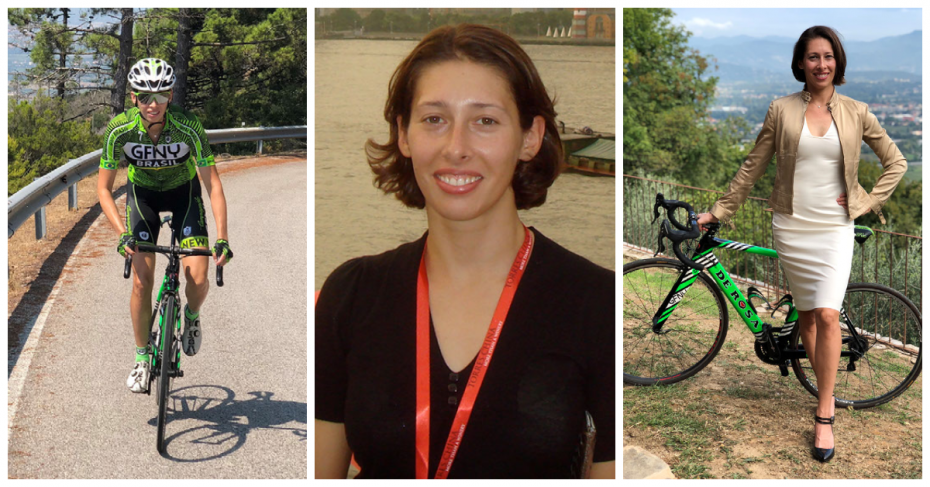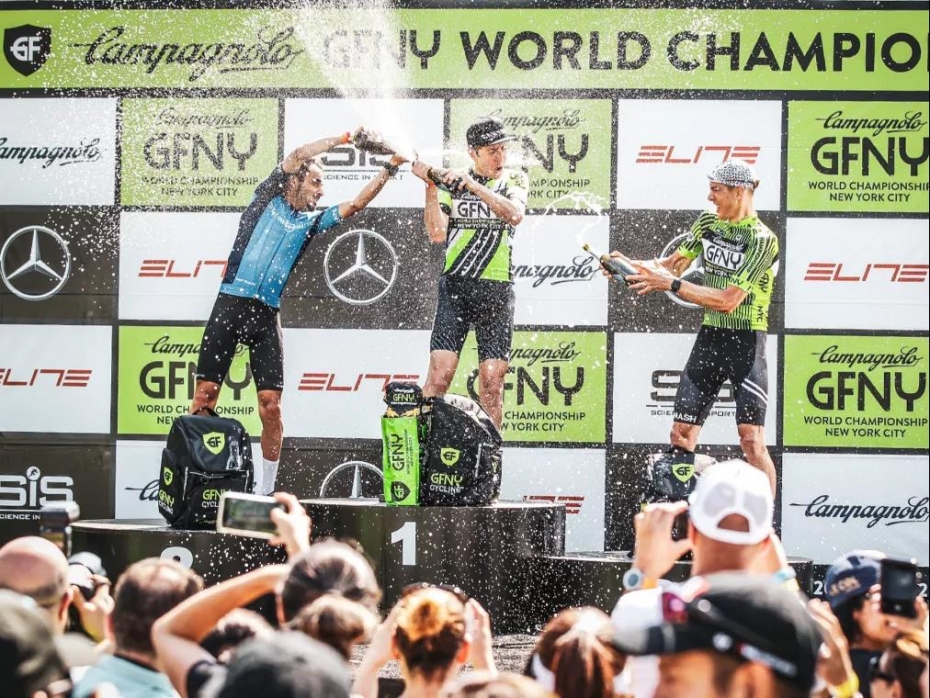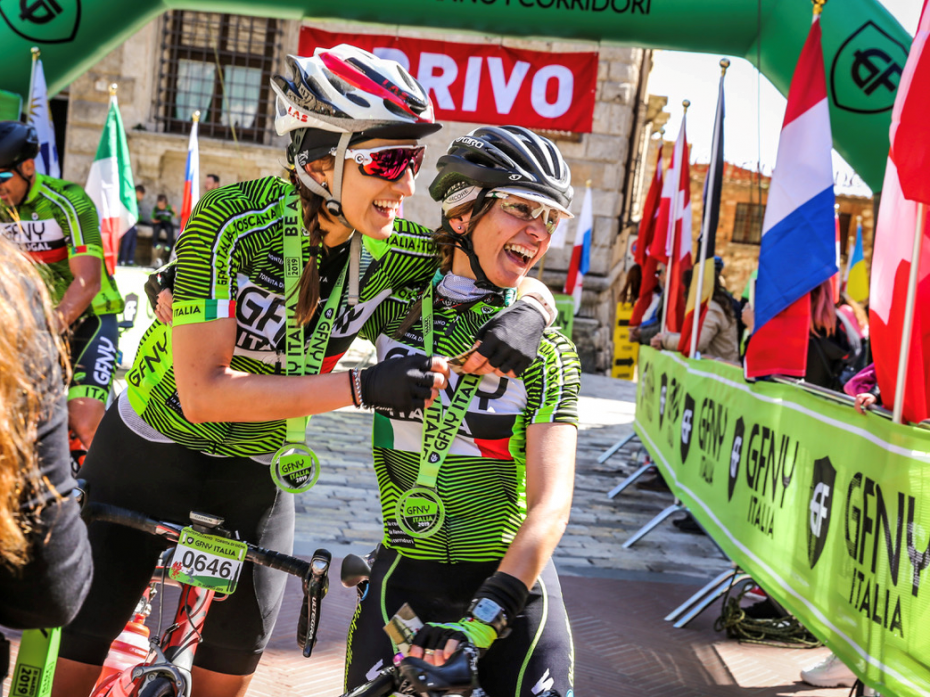From start-up to finish line in the world of global sports events

In the latest instalment of our Alumni Chapter Interview Series, Gran Fondo New York (GFNY) Founder and CEIBS MBA 2009 alum Lidia Fluhme tells CEIBS MBA 2022’s Antoine Millot how her stay in Shanghai gave her perspective on her career and shares what it takes to be a sports and entertainment entrepreneur amidst the challenges and uncertainty of COVID-19.
Antoine Millot: Hi Lidia! So, your company, Gran Fondo New York, operates cycling and running races all over the world. Can you tell us a little bit about how you started GFNY?
Lidia Fluhme: A few months after I completed my MBA, my now-husband and I had the idea to organise a cycling race in New York City. We saw the draw of the NYC Marathon and wondered why no such event existed for cyclists. In May 2010, I quit my job to devote my time to developing the concept and setting up the company and race. After I received approvals from authorities to hold the race, my husband quit his Wall Street job and joined me in organising.
AM: How did GFNY evolve from there?
LF: We didn’t know where the journey would take us, but after the first race, we decided to do it again. After three years in NYC, we expanded the GFNY brand to include more races in other destinations, which offered a consistent set of rules and participant experience. In 2014-2015, the first international season of the GFNY Global Cycling Marathon Series, we held six races. From there, we grew the series each year, adding more high-quality events, building our franchise operations and even moving into other business areas such as apparel, sunglasses, technology platform, coaching services and travel.
AM: This year has been a challenging one for everyone, but travel, sports and entertainment industries have particularly suffered. How was GFNY impacted by the COVID-19 pandemic, and how have you tried to turn this situation into future opportunities?
LF: COVID’s impact was swift and severe for GFNY. During one four-week window, we had to postpone 75% of our races. Our ticket sales stopped too, due to uncertainty that events could be held and government-imposed travel restrictions. We worked closely with governments who were willing to hold events while modifying our race operations to be COVID-safe and held four races in late 2020 in France, the US, Mexico and Ecuador. That said, we should have held 22 races in 2020, so the revenue impact was significant. However, our merchandise sales and a trickle of ticket sales allowed us retain all of our employees and pay our rent.

AM: With that many events cancelled, how did you spend the downtime you had from organising races?
LF: We mostly focused on improving our technology. We doubled down in the pandemic and invested into a completely brand new website, which we took live in late July 2020. We also continued with investment into our ticketing and user accounts platform, which underwent a complete back-end upgrade during the pandemic. Besides this, we spent time working on making contacts to get new races off the ground. We were able to confirm three new races for 2021, and hopefully we can add 20 new races – double the number from 2019 – for 2023. We’ve never fought so hard to keep our company going, but have also remained committed, driven and enthusiastic about the future of GFNY post-pandemic.
AM: Given your own experience, do you think starting a company is the right move for others?
LF: Starting a new company or launching a new product requires a great idea and a unique offering that is currently not provided by someone else or an offering that you can improve compared to what’s being offered today. The idea may not come to you today, it may come in one year or five years or 10 years. Don’t force starting a company if the idea is not 100% right. Instead, consider joining a company that you love and that feeds your enthusiasm, passion and energy and where you can move up and drive decisions.
AM: Do you have any advice you can share for those interested in moving ahead with launching their own business?
LF: Build a team that can support you. There has to be a visionary on the team – the person who drives the vision for the product or service – but there also has to be someone who gets the vision done. I’ve seen many new companies that lacked a visionary and struggled with their unique offering. I’ve also seen companies that had visionaries but not the ability to set up operations and deliver products successfully. Seek out a strong partner who has opposite skills from yours, to compliment your skills and build together the success of your company.
AM: You actually did your MBA at NYU Stern, but chose to do your international exchange at CEIBS in Shanghai. How did this exchange impact your career?
LF: My time at CEIBS was instrumental for my current professional life. I had imagined that I would work for a large company after I earned my MBA, and I didn’t go to CEIBS with any plan beyond having an international learning experience that could expand my thinking as a future employee of a multinational company. But when I arrived in Shanghai from NYC, my mind was blown. It was impossible to just stay at the school. I attended expos to learn more about various industries, suppliers and buyers. I went to Yiwu [in Zhejiang Province] to visit factories and learn about sourcing from them. I also went to many markets in Shanghai and learned about negotiating with and establishing cooperation with Chinese suppliers.

AM: Is there any particular aspect of doing business in China that stands out in your mind from your time at CEIBS?
LF: Entrepreneurship is so strong in China, and the country’s society is open to creating companies and new products. It was this entrepreneurial spirit that fed my own. During my time at CEIBS, I also learned how Chinese people think and work, which has helped me develop mutually beneficial, long-standing and successful relationships with a number of factory partners in China to this day. The classes at CEIBS provided me with an even deeper understanding of collaborating with Chinese companies, how Chinese cooperate with companies in other countries and learning about Chinese people. I would not have been able to learn the culture on this level if I had just gone on a trip to China. And if I had gone to China as a company employee, I would not have had the time or freedom to pursue my interests, so I greatly value my time at CEIBS.
AM: Finally, is there anything else you’d like to add?
LF: Life is short. Make a point to live your every day in a way that makes you happy. Don’t spend time doing a job because you feel like “you’re supposed to do” or because you’ve invested too much in your current job or industry and don’t want to throw it away to start something new. The person sitting beside you is wired differently than you and may find personal meaning and satisfaction in the same work even if you don’t. Don’t aspire to fit other people’s expectations or their measurement of success.
For more information about CEIBS alumni and our global network of alumni chapters, please visit our alumni page here.












